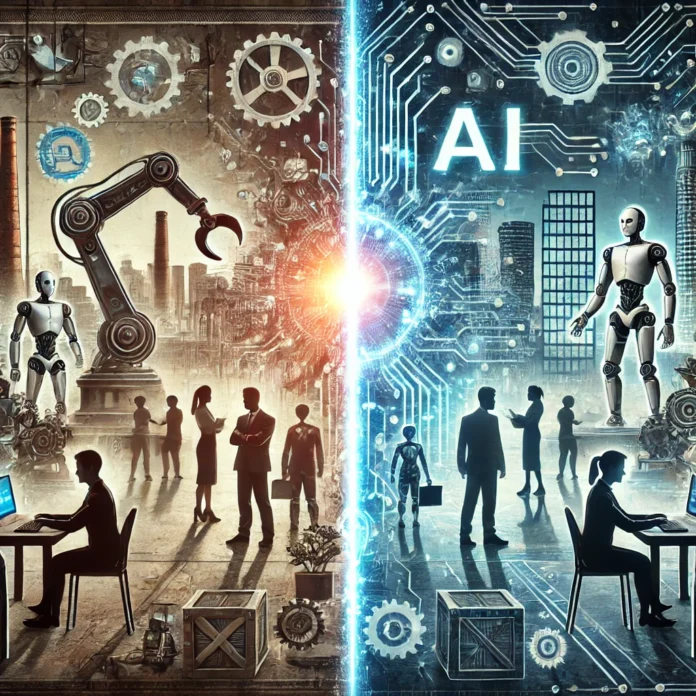A Global Reckoning
Artificial Intelligence (AI) is no longer a distant prospect; it is a present reality reshaping the global workforce. From automating routine tasks to generating creative content, AI’s capabilities are vast and growing. While this technological evolution promises increased efficiency and innovation, it also raises critical questions about employment, equity, and the very nature of work.
The Double-Edged Sword of Automation
AI’s impact on employment is multifaceted. On one hand, it threatens to displace jobs, particularly those involving repetitive or predictable tasks. A study by the World Economic Forum predicts that by 2025, 85 million jobs may be displaced by machines, but even more—97 million—new roles could emerge that are more adapted to the new division of labor between humans, machines, and algorithms. Forbes
However, the transition is not without challenges. Workers in sectors such as manufacturing, customer service, and data entry are particularly vulnerable. Moreover, the rapid pace of change may outstrip the ability of educational and training institutions to prepare workers for new roles, exacerbating unemployment and social inequality.
The Promise of Augmentation
Conversely, AI also holds the potential to augment human labor, enhancing productivity and creating new opportunities. For instance, in the legal field, AI can assist with research and document analysis, allowing lawyers to focus on more complex tasks. Similarly, in healthcare, AI-driven diagnostics can support medical professionals in delivering more accurate and timely care. Reuters
Furthermore, the demand for AI-related skills is growing. Industries are seeking professionals who can develop, manage, and maintain AI systems. This shift underscores the importance of reskilling and lifelong learning to equip the workforce with the necessary competencies.
Navigating the Transition
To harness AI’s benefits while mitigating its risks, a multifaceted approach is required:
- Education and Training: Curricula must evolve to include AI literacy, critical thinking, and adaptability.
- Policy and Regulation: Governments should implement policies that support workers during transitions, such as unemployment benefits and job placement services.
- Ethical Considerations: Ensuring that AI systems are designed and used ethically is paramount to prevent biases and protect privacy.
- Inclusive Growth: Efforts must be made to ensure that the benefits of AI are distributed equitably across different sectors of society.
A Call to Action
The AI revolution presents both challenges and opportunities. By proactively addressing the potential disruptions and investing in human capital, societies can navigate this transformation successfully. Embracing AI should not mean displacing humanity but rather enhancing it.




